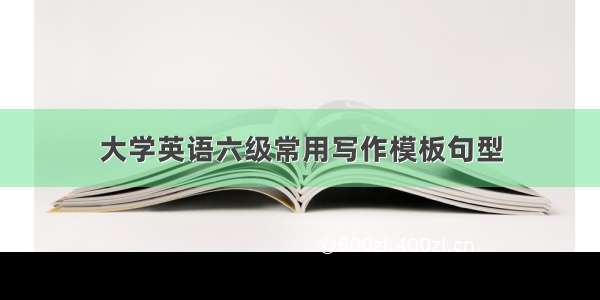
【导语】为进一步推动我国大学英语教学,适应国家改革开放的需要,使大学生更加重视英语口语学习,获得更强的英语口语交际能力。在这里列出一些最常用的句子,要熟读,在面试中要熟练.看起来很简单,可是要做到 脱口而出,不一定很简单哦。
【生病】
你不舒服吗?Are you feeling okay? *见到身体状况不好的人时的问话。Do you feel all right?你怎么了?What"s wrong? *wrong “身体不舒服”。What"s wrong? (你怎么了?)I"m not feeling well. (我觉得身体有点不对劲。)Is anything wrong?Are you okay?What"s the matter? *matter“问题”、“麻烦”。Is everything all right?你的脸色真不好。You look pale. *pale“脸色不好的,没有血色的。”You look pale. Are you okay? (你的脸色很难看。没事吧?)I guess I"m just tired. (我想可能是有点儿累了。)You don"t look well. (你看上去身体不太好。)我觉得难受。I don"t feel well.I don"t feel well. (我觉得难受。)Please sit down for a while. (你坐会儿吧。)I"m not feeling well.你好像不太舒服。You don"t look well. *look“看上去……”。You don"t look well. (你好像不太舒服。)I have a cold. (我感冒了。)她昏过去了。She passed out. *pass out“昏过去,失去知觉”。我觉得难受。I feel sick.I don"t feel well.I feel bad.我肚子疼。I have a stomachache. *stomachache“胃痛,腹痛”。I have a stomachache. (我肚子疼。)How long have you had it? (疼多长时间了?)I have a stomachache. (我肚子疼。)Did you eat too much? (是不是吃多了?)My stomach hurts.隐隐作痛。I have a dull pain.钻心地疼。I have a sharp pain.一跳一跳地疼。I have a throbbing pain. *throb“一跳一跳地”、“突突地跳”。我感到巨痛。I have a piercing pain. *pierce“(痛苦等)刺骨,刻骨”。像针扎似地疼。I have a stabbing pain. *stab“刺”、“针扎”。我拉肚子了。I have diarrhea. *diarrhea“拉肚子”。我食物中毒了。I have food poisoning.血压高/低。I have high/low blood pressure. *blood pressure“血压”。我头疼。I have a headache.What happened, sir? (你怎么了?)I have a headache. (我头疼。)My head hurts.My head is pounding.I have a splitting headache. (我的头像裂了似地疼。)
【再见】
Goodbye. 分手时最常用的寒暄用语。Goodbye. (再见!)Goodbye. Take care! (再见,保重啊!)再见!Bye. *比Goodbye的说法随便。Bye for now.Have a nice day. (祝你今天愉快!)See you later. (以后见!)回头见!See you.See you later.See you soon.See you again.Catch you later.See you around. *用于在同一座楼里,过会儿还有可能再见面时。我去了啊。I"m off now. *off “去,走开”。I"m leaving.See you.我得告辞了。I have to go.I have to go. (我得告辞了。)Can"t you stay a little longer? (再呆会儿吧!)祝你好运!Good luck! *在对某人去旅行或去做一件比较难的事情时使用。Good luck! (祝你好运!)Thanks. I need it. (谢谢,借你吉言。)I wish you good luck.祝你愉快!Have a nice day. *与Goodbye的用法一样。Have a nice day! (祝你愉快!)Same to you. (也祝你愉快!)祝你周末愉快!Have a nice weekend.加油啊!祝你好运!Good luck.Break a leg. *原本是对要上台演出的人说的话。Go for it. (走吧!)Hang in there. (那,加油吧!)祝你玩得愉快。Have fun.We"re going to Hawaii! (我们要去夏威夷喽!)Have fun! (祝你玩得愉快。)Have a good time!就这样,坚持下去。Keep it up.Keep it up! (就这样,坚持下去。)Thanks for the encouragement. (谢谢你的鼓励!)别干得太猛。Don"t work too hard.Take care.Be careful.旅途愉快!Have a nice trip. *对要去旅行的人说的话。
【打招呼】
Hi! 比Hello随便,用于比较熟悉的人,男女都可以用。Hi! (嗨!)Hi! (嗨!你好!)你好!Hello. *一天中常用的寒暄用语。A)Hello, Mr. Smith. (史密斯先生,您好!)B)Oh, hi John. (嗨,约翰,你好!)*A为学生,B为老师。你好!Good afternoon. *下午用寒暄用语。主要用于工作环境中。晚上好!Good evening.你好吗?How are you? *最常用的问候方式。除了有问候对方“你好吗”的意思外,还含有“午安”在内的意思。Hi, John! (嗨!约翰,你好!)Oh, Mary! How are you? (噢,玛丽,你好吗?)How are you? (你好吗?)Pretty good. (非常好。)How"s it going?How"re you doing? *语气较随便。我很好,谢谢。Fine, thank you.I"m fine, thank you.不怎么好。Not so good. *用于身体状况不好或是有其他什么不好的事时。How are you feeling? (你的身体怎么样?)Not so good. (不怎么好。)Not so great.Could be better. *虽然“有向好的方向发展的余地”,但给人一种“不怎么好”的语感。老样子。Nothing much.Nothing special.认识您我很高兴。Glad to meet you. *用于初次见面。I"m glad to meet you.Nice to meet you.It"s great meeting you.出什么事啦?What"s up?What"s up? (出什么事啦?)Nothing much. (没什么。)What"s new? *用于强调有无新的变化。What"s happening? *强调“发生什么事情了?”How"ve you been? *有好长时间没见的语感。你的家人怎么样?How"s your family?How"s your family? (你的家人怎么样?)Everyone"s fine. (大家都很好。)还好吧?How"s everything? *意为“进行得顺利吗?”。如果在饭馆服务员这样问的话是“饭菜怎么样?”的意思。How"s everything? (怎么样,还好吧?)It"s going pretty well. (一切很顺利。)How"s everything? (还好吧?)Same as always. (和平常一样。)How"s everything going?How"s it going?How are things?工作怎么样?How"s business?还可以。Not bad.今天怎么样?How did it go today? *用于会议或聚会等特别场合。How did it go today? (今天怎么样?)So-so. (还凑合吧。)How was your day?和往常一样。Oh, same as usual.How was work today? (今天工作怎么样?)Oh, same as usual. (和往常一样。)Same old, same old. *俚语。Another day, another dollar.急着干什么去呀?What"s the hurry?
















